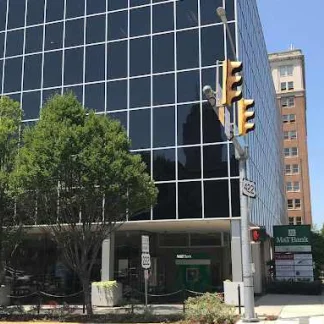Threshold Rehabilitation Services
Threshold Rehabilitation Services is a private rehab located in Reading, Pennsyl...
The Council on Chemical Abuse provides countywide leadership in the development and implementation of policies, programs and a system of prevention and intervention services that prevent the onset of illegal alcohol, tobacco and drug use and treatment services that promote recovery from addiction to all substances. Council on Chemical Abuse is located in Reading, Pennsylvania.
The Council provides a variety of prevention services that can be tailored to any age group, topic, or setting in Berks County. Prevention services range from single session education to multi-session evidence-based curriculum. All services are provided free of charge.
Contact us for more information: (610) 376-8669

Connect with Council on Chemical Abuse by calling their admissions team directly.
(610) 376-8669 Website Get DirectionsGroup therapy is any therapeutic work that happens in a group (not one-on-one). There are a number of different group therapy modalities, including support groups, experiential therapy, psycho-education, and more. Group therapy involves treatment as well as processing interaction between group members.
In individual therapy, a patient meets one-on-one with a trained psychologist or counselor. Therapy is a pivotal part of effective substance abuse treatment, as it often covers root causes of addiction, including challenges faced by the patient in their social, family, and work/school life.
Nicotine Replacement Therapy (NRT) is a way of getting nicotine into the bloodstream without smoking. It uses products that supply low doses of nicotine to help people stop smoking. The goal of therapy is to cut down on cravings for nicotine and ease the symptoms of nicotine withdrawal.
In individual therapy, a patient meets one-on-one with a trained psychologist or counselor. Therapy is a pivotal part of effective substance abuse treatment, as it often covers root causes of addiction, including challenges faced by the patient in their social, family, and work/school life.
Nicotine Replacement Therapy (NRT) is a way of getting nicotine into the bloodstream without smoking. It uses products that supply low doses of nicotine to help people stop smoking. The goal of therapy is to cut down on cravings for nicotine and ease the symptoms of nicotine withdrawal.
Nicotine Replacement Therapy (NRT) is a way of getting nicotine into the bloodstream without smoking. It uses products that supply low doses of nicotine to help people stop smoking. The goal of therapy is to cut down on cravings for nicotine and ease the symptoms of nicotine withdrawal.
Threshold Rehabilitation Services is a private rehab located in Reading, Pennsyl...
Reading Hospital Center for Mental Health is a private rehab located in Reading,...
Child and Family Support – Reading is a private rehab located in Reading, Pennsy...
Center for Mental Health is a private rehab located in Reading, Pennsylvania. Ce...